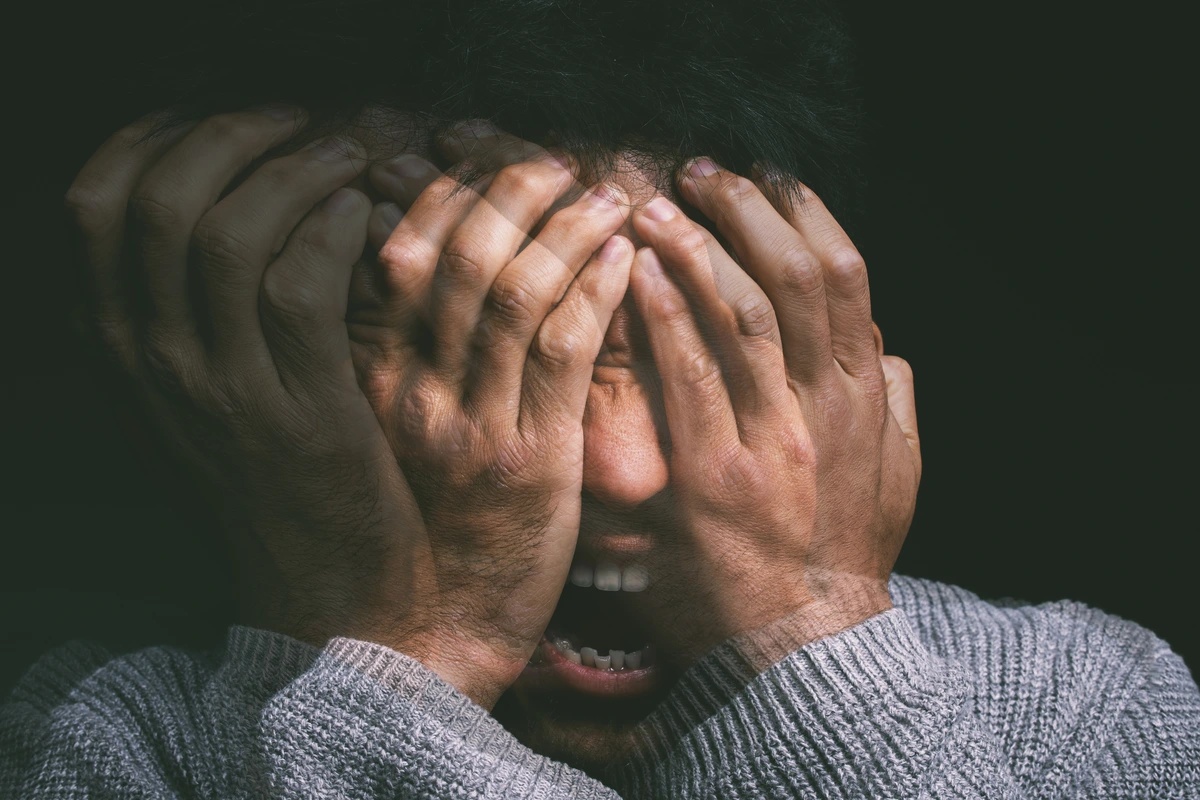Paranoid Schizophrenia: Symptoms, Causes, and Treatment


Paranoid schizophrenia is a mental disorder that affects the way a person thinks, feels, and behaves. It is often characterized by extreme paranoia, hallucinations, and delusions. People with this type of schizophrenia may have difficulty distinguishing between what is real and what is not, making it challenging to function in daily life.
What Is Paranoid Schizophrenia?
Paranoid schizophrenia was once considered a distinct subtype of schizophrenia. It’s now viewed as an outdated classification within the field of mental health. The historical context of paranoid schizophrenia dates back to early psychiatric classifications that attempted to categorize different presentations of the disorder.
However, with advancements in research and clinical practice, paranoid schizophrenia has been phased out as a separate entity due to its limited utility in accurately capturing the complexity of schizophrenia.
The removal of paranoid schizophrenia from widely recognized diagnostic manuals such as DSM-5 and ICD-11 signifies a shift towards a more comprehensive understanding of schizophrenia as a spectrum disorder with diverse symptomatology. This change reflects the evolving knowledge in psychiatry that emphasizes the importance of considering various dimensions of symptoms and functioning rather than relying on rigid subtypes.

Schizophrenia Vs. Paranoid Schizophrenia
Distinguishing between general schizophrenia and the outdated paranoid subtype involves recognizing key differences in symptom presentation and diagnostic criteria. While schizophrenia encompasses a range of symptoms affecting thoughts, emotions, and behavior, the paranoid subtype was characterized by prominent delusions or hallucinations related to persecution or grandiosity. The distinction highlights the heterogeneity within schizophrenia and underscores the need for individualized treatment approaches based on symptom profiles.
With the elimination of the paranoid subtype, clinicians now focus on assessing an individual's specific symptom profile and functional impairments to tailor treatment interventions effectively. This personalized approach recognizes that individuals with schizophrenia may present with varying combinations of symptoms beyond paranoia, necessitating a holistic treatment strategy that addresses their unique needs.
Who Gets Paranoid Schizophrenia?
Schizophrenia affects individuals across diverse demographics, with young adults being particularly vulnerable to its onset. While there are no significant gender differences in prevalence, certain age groups may exhibit higher rates of schizophrenia, emphasizing the importance of early detection and intervention among younger populations.
However, disparities in access to care based on demographic factors such as socioeconomic status or geographical location can hinder timely diagnosis and treatment for some individuals.
What Is Schizophrenia?
Schizophrenia is a chronic and severe mental disorder that affects approximately 1% of the population worldwide. It typically emerges in late adolescence or early adulthood and can last throughout a person's life, causing significant disruptions in work, relationships, and overall quality of life.
The condition is marked by changes in perception, thinking, emotions, and behaviors. These changes may manifest as hallucinations, delusions, disorganized thoughts and speech, reduced emotional expression, and difficulty with daily functioning.
Who Gets Paranoid Schizophrenia?
Global statistics indicate that approximately 20 million people worldwide live with schizophrenia, highlighting the significant burden of this mental health condition on a global scale. Prevalence rates may vary across regions due to factors like access to healthcare services, cultural beliefs surrounding mental illness, and socioeconomic conditions. These variations underscore the need for tailored public health policies and resources aimed at improving awareness, early intervention, and support for individuals living with schizophrenia.
Symptoms of Paranoid Schizophrenia
The symptoms of paranoid schizophrenia are similar to those of general schizophrenia but with a stronger emphasis on paranoia.
Identifying Symptoms
Schizophrenia is characterized by hallucinations, delusions, and disorganized thinking. Individuals may experience auditory hallucinations, believing they hear voices directing them. Delusions involve fixed false beliefs, such as paranoia or grandiosity. Disorganized thinking can manifest as disjointed speech or behavior.
These symptoms can have profound effects on daily functioning. For instance, a person experiencing paranoid delusions may isolate themselves due to fear of persecution. Early recognition of these symptoms is crucial for timely intervention and management of the disorder.
Paranoia Explained
Paranoia in schizophrenia refers to extreme distrust and suspicion towards others without valid reasoning. It often manifests as irrational fears of being harmed or plotted against. This symptom contributes significantly to the distress experienced by individuals with schizophrenia.
In real-life scenarios, a person with paranoid schizophrenia may believe that their neighbors are spying on them or that government agencies are monitoring their every move. These beliefs can lead to social withdrawal, hostility, or even aggression in severe cases.
Insight Lack
Lack of insight in schizophrenia refers to the inability to recognize one's mental health condition or the need for treatment. This deficit can hinder individuals from seeking help or adhering to prescribed therapies, worsening their prognosis over time.
Healthcare providers face challenges in managing patients with insight deficits. Strategies include building trust through empathetic communication, involving family members in treatment decisions, and utilizing psychoeducation to enhance understanding of the illness.
Causes and Triggers
The development of schizophrenia is influenced by a combination of genetic, environmental, and neurobiological factors. Genetic predisposition plays a significant role, with a higher risk among individuals with affected family members. Environmental stressors like trauma or substance abuse can trigger the onset of symptoms.
Neurobiological abnormalities in brain structure and neurotransmitter function also contribute to the pathophysiology of schizophrenia. The complex interplay of these factors underscores the multifactorial nature of the disorder's etiology.

Are You Struggling with Mental Health or Addiction?
We Can Help. Call Us Now!
CALL: 877-839-1772
Treatment and Management for Paranoid Schizophrenia
Schizophrenia treatment involves a combination of medication, therapy, and support services. A multidisciplinary team, including psychiatrists, psychologists, and social workers, collaborates to manage the disorder.
Individualized treatment plans are crucial to address each patient's unique symptoms and needs.
Medication and Therapy
Medication plays a vital role in managing paranoid schizophrenia symptoms. Typical antipsychotics target dopamine receptors in the brain, while atypical antipsychotics affect serotonin levels as well. Psychotherapy complements pharmacological treatment by addressing emotional and behavioral aspects.
Benefits of psychotherapy: It helps individuals understand their condition, cope with stress, and improve social skills.
Differences in medication: Typical antipsychotics may have more side effects like movement disorders compared to atypical ones.
There are different types of therapy that can help manage the symptoms of paranoid schizophrenia:
Self-Care Strategies
Self-care is essential for individuals with schizophrenia to maintain their well-being. Adhering to prescribed medications and attending regular appointments are crucial for symptom management. Managing stress through relaxation techniques, sticking to daily routines, and building social connections can enhance overall quality of life.
Practical tips: Engage in physical activity, practice mindfulness or meditation, and maintain a healthy diet.
Importance of routine: Establishing daily routines can provide structure and stability for individuals with schizophrenia.
Recovery Expectations
Recovery from schizophrenia is a gradual process that varies for each individual. It's important to understand that recovery is not linear but consists of ups and downs along the way. Building resilience, having strong support systems from family and mental health professionals, as well as consistent treatment adherence are key factors in achieving long-term recovery.
Realistic expectations: Recovery may involve setbacks but progress is possible with perseverance.
Role of support systems: Family support, peer groups, and mental health services play a critical role in the recovery journey.
Is Paranoid Schizophrenia Contagious?
No, paranoid schizophrenia is not contagious. It is a complex mental disorder that is thought to result from a combination of genetic and environmental factors. Research suggests that people with a family history of schizophrenia are more likely to develop the condition, but it is not directly passed from person to person.
Dispelling Myths
Schizophrenia is not contagious, contrary to a common myth perpetuated by misinformation. This mental disorder arises from a complex interplay of genetic, environmental, and neurological factors. Individuals cannot "catch" schizophrenia through social interactions or proximity to affected individuals.
Stigmas surrounding schizophrenia often stem from misconceptions about the disorder. These stigmas can lead to discrimination and isolation, and hinder individuals from seeking help. It is crucial to address these stigmas to promote understanding and support for those with schizophrenia.
Schizophrenia Does Not Mean Split Personality
One prevalent misconception is that people with schizophrenia have a split personality. In reality, schizophrenia involves disruptions in thought processes, perceptions, emotions, and behaviors. This disorder does not equate to having multiple personalities as portrayed in media and popular culture.
Schizophrenia Does Not Mean Violent or Dangerous
Another myth is that individuals with schizophrenia are violent and dangerous. Research indicates that most people with schizophrenia are not violent and are more likely to be victims of violence than perpetrators. Dispelling this myth is essential to combatting stigma and promoting empathy towards those living with the condition.
Accurate information is key to challenging false beliefs about schizophrenia. Providing education on the real causes, symptoms, and treatments of the disorder can help dispel myths and reduce stigma. By fostering open conversations and increasing awareness, society can create a more supportive environment for individuals with schizophrenia.
Are You Struggling with Mental Health or Addiction?
We Can Help. Call Us Now!
CALL: 877-839-1772
Diagnosis and Testing for Paranoid Schizophrenia
Schizophrenia diagnosis relies on specific criteria outlined in the Diagnostic and Statistical Manual of Mental Disorders (DSM-5). Mental health professionals evaluate symptoms like hallucinations, delusions, disorganized thinking, and negative symptoms. The presence of these symptoms for a significant period is crucial for diagnosis.
Evaluation
A comprehensive evaluation by mental health professionals is essential. They consider medical history and family history and conduct interviews to understand the patient's experiences. Observations of behavior and mood changes play a vital role in accurate diagnosis. The complexity of symptoms requires a thorough assessment to differentiate from other mental health conditions.
Challenges in Diagnosing Paranoid Schizophrenia
Accurately diagnosing schizophrenia poses challenges due to its varying symptomatology. Symptoms may overlap with other disorders, leading to misdiagnosis. Patients may not always exhibit all classic symptoms, making it challenging to pinpoint the condition accurately. The stigma surrounding mental illness can also hinder individuals from seeking help promptly.
Required Tests
The diagnostic process for schizophrenia involves various tests and assessments. Imaging tests such as MRI or CT scans help identify any structural abnormalities in the brain that may indicate schizophrenia. Blood work is crucial to rule out physical conditions that could mimic psychiatric symptoms.
Psychological evaluations play a significant role in assessing cognitive function and emotional well-being. These evaluations help mental health professionals understand the patient's thought processes, emotions, and behavior patterns. Combining imaging tests, blood work, and psychological assessments ensures a comprehensive approach to confirming a schizophrenia diagnosis.
Types of tests:
Imaging tests (MRI, CT scans)
Blood work
Psychological evaluations
Benefits:
Identify structural brain abnormalities
Rule out physical conditions mimicking psychiatric symptoms
A thorough testing protocol is vital in confirming a schizophrenia diagnosis accurately. By incorporating multiple assessments, healthcare providers can establish a more robust diagnostic picture. This multidimensional approach helps mitigate the risk of misdiagnosis and ensures appropriate treatment strategies are implemented effectively.

What Causes Paranoid Schizophrenia?
The exact cause of paranoid schizophrenia is not known, but research suggests that a combination of genetic, biological, environmental, and psychological factors may contribute to its development.
Genetic Factors
Having a family history of schizophrenia or other mental health disorders increases the risk of developing paranoid schizophrenia. However, genetics alone do not determine who will develop the condition.
Biological Factors
Research has shown that people with schizophrenia have structural and functional differences in their brains compared to those without the condition. These changes may affect certain brain chemicals and neurotransmitters, contributing to symptoms such as hallucinations and delusions.
Environmental Factors
Exposure to certain environmental factors, such as viral infections during pregnancy or early childhood trauma, may also increase the risk of developing paranoid schizophrenia.
Psychological Factors
Stressful life events and chronic stress may contribute to the development or exacerbation of paranoid schizophrenia in individuals who are genetically predisposed to the condition.
Are You Struggling with Mental Health or Addiction?
We Can Help. Call Us Now!
CALL: 877-839-1772
Can Paranoid Schizophrenia Be Prevented?
There is no known way to prevent paranoid schizophrenia. However, early identification and intervention can help manage symptoms and improve quality of life. This includes seeking treatment as soon as possible if you suspect you or someone you know may be experiencing symptoms of the condition.
Risk Reduction Tips
Individuals with schizophrenia can take proactive steps to reduce the risk of relapse and manage their condition effectively. One crucial strategy is recognizing early warning signs of a potential relapse, such as changes in mood, sleep patterns, or behavior. By staying vigilant and seeking help promptly, individuals can prevent the escalation of symptoms.
Another important aspect of preventing relapse is adhering to medication regimens, especially prescribed antipsychotic drugs. These medications play a vital role in managing symptoms and reducing the likelihood of relapse. It's essential for individuals to communicate openly with their healthcare providers about any concerns or side effects related to their medication.
In addition to medication compliance, maintaining a healthy lifestyle can significantly impact symptom management and overall well-being for individuals with schizophrenia. Regular exercise, balanced nutrition, and adequate sleep are all critical components of a healthy lifestyle that can complement medical treatment.
Moreover, engaging in supportive therapies such as cognitive behavioral therapy (CBT) or family therapy can provide additional tools for coping with symptoms and stressors. These therapies can help individuals develop effective strategies for managing their condition and improving their quality of life.

Living with Paranoid Schizophrenia: The Effects
Living with paranoid schizophrenia can be challenging, but it is possible to manage the condition and live a fulfilling life. This may involve ongoing treatment, support from loved ones, and making lifestyle changes to reduce stress and improve overall health.
Daily Life Coping
Living with paranoid schizophrenia can present daily challenges, but there are effective coping mechanisms available. Establishing routines can help manage symptoms and improve overall well-being. Ensuring a supportive environment is crucial for individuals with this condition.
Organization Skills
Maintaining organization in daily tasks can alleviate stress and anxiety. Utilizing tools like calendars and reminders can aid in managing appointments and responsibilities. Engaging in regular exercise and maintaining a healthy diet can also contribute to better mental health.
Time Management
For individuals with paranoid schizophrenia, time management skills are essential. Breaking tasks into smaller steps can make them more manageable. Setting realistic goals and priorities helps in staying focused and reducing feelings of overwhelm.
Navigating social interactions may be challenging, but communication is key. Openly discussing the condition with trusted individuals can foster understanding and support. Joining support groups or therapy sessions can provide a safe space to share experiences and learn from others.
When to Seek Help
Recognizing signs that indicate the need for professional help is crucial for individuals with paranoid schizophrenia. Sudden changes in behavior, hallucinations, or severe paranoia should prompt immediate intervention. Seeking help early can prevent crises and ensure timely treatment.
Early Intervention
Early intervention plays a significant role in managing paranoid schizophrenia effectively. Contacting mental health providers at the onset of concerning symptoms can lead to quicker stabilization. It is important to prioritize mental health care and not delay seeking assistance when needed.
In situations where symptoms escalate rapidly or pose a risk to oneself or others, contacting emergency services is vital. Individuals experiencing severe distress or loss of touch with reality should seek immediate medical attention. Emergency rooms are equipped to handle psychiatric emergencies promptly.
ER Visit Guidelines
Individuals with paranoid schizophrenia should seek emergency care if they experience suicidal thoughts, extreme agitation, or hallucinations commanding harmful actions. Promptly communicating symptoms and concerns to healthcare providers is essential during emergency visits.
Emergency room staff typically conduct assessments to evaluate the individual's mental state and determine appropriate interventions. Providing detailed information about medications, medical history, and current symptoms aids in receiving tailored care promptly.
Advocating for proper mental health treatment during emergency visits is crucial for individuals with paranoid schizophrenia. Ensuring that healthcare professionals understand the nature of the condition helps in receiving accurate diagnoses and effective interventions.

Are You Struggling with Mental Health or Addiction?
We Can Help. Call Us Now!
CALL: 877-839-1772
Prognosis and Outlook for Paranoid Schizophrenia
Paranoid schizophrenia is a lifelong condition, and there is currently no cure. However, with proper treatment and support, many people with the disorder can manage their symptoms and lead productive lives.
Long-Term Expectations
Individuals diagnosed with paranoid schizophrenia often face a challenging long-term outlook. The functional outcome varies significantly among patients, influenced by factors such as early diagnosis, treatment adherence, and support systems in place. While some may experience periods of stability and improved functioning, others may struggle with persistent symptoms and impairments.
Over time, the severity of symptoms can fluctuate, impacting daily life and relationships. It is crucial for individuals to adhere to their treatment plans consistently to manage symptoms effectively. Despite the challenges, there are stories of resilience and success where individuals have learned to cope with their condition, maintain relationships, pursue education or employment opportunities, and lead fulfilling lives.
Despite the hurdles, it's essential for individuals living with paranoid schizophrenia and their loved ones to remain hopeful about the future. With advancements in treatment options, therapy approaches, and community support programs, there are opportunities for better management of symptoms and improved quality of life. Encouragement from healthcare providers, family members, friends, and peers can play a significant role in fostering a positive outlook and promoting overall well-being.
Supporting Loved Ones
Supporting a loved one with paranoid schizophrenia can be challenging, but with the right approach, it is possible to provide valuable support. Empathy plays a crucial role in understanding what your loved one is going through. By showing empathy, you create a safe space for them to express their feelings without judgment.
Communication Is Important
Communication is key when supporting someone with paranoid schizophrenia. Open and honest communication helps build trust and fosters a deeper connection with your loved one. It's essential to listen actively and validate their experiences, even if you may not fully understand them.
Setting Boundaries
Setting boundaries is important for both you and your loved one. Establishing clear boundaries helps maintain a healthy relationship and protects your well-being. It's crucial to communicate these boundaries effectively and consistently while being mindful of your loved one's emotions.
When supporting someone with paranoid schizophrenia, caregivers often face challenges that can be overwhelming. It's essential for caregivers to prioritize self-care and seek additional support when needed. Various resources are available to provide guidance and assistance for caregivers, including support groups, counseling services, and educational materials.
Remember that each person's experience with paranoid schizophrenia is unique, so it's important to tailor your support based on their individual needs. By offering empathetic, compassionate care and maintaining open communication, you can make a significant difference in your loved one's life.
Coping Strategies
Coping strategies play a vital role in managing the challenges associated with supporting someone with paranoid schizophrenia. Educating yourself about the condition can help you better understand what your loved one is going through. Seeking guidance from mental health professionals can provide valuable insights and strategies for effective support.
Prioritize self-care: Caregivers often neglect their own well-being while focusing on their loved ones. Taking time for yourself is essential to prevent burnout and maintain emotional resilience.
Foster a supportive environment: Create a safe space where your loved one feels comfortable expressing themselves without fear of judgment.
Seek professional help: Don't hesitate to reach out to mental health professionals or support groups for guidance and assistance in navigating the challenges of supporting someone with paranoid schizophrenia.
Remember that offering consistent support, understanding, and patience can make a significant impact on your loved one's journey toward recovery.
Closing Thoughts
You now have a comprehensive understanding of paranoid schizophrenia, from its symptoms and triggers to diagnosis, treatment, and living with the condition. Remember that early detection and intervention are crucial for managing this condition effectively. By recognizing the signs and seeking help promptly, you can improve your quality of life and well-being. Stay informed, follow your treatment plan diligently, and lean on your support system when needed.
If you or someone you know is showing symptoms of paranoid schizophrenia, don't hesitate to reach out to a healthcare professional for guidance. Your proactive approach can make a significant difference in managing the condition and enhancing overall mental health. Stay educated, stay vigilant, and prioritize your mental well-being above all else.
Paranoid Schizophrenia Treatment in Orange County
Like other forms of schizophrenia, paranoid schizophrenia can be devastating. Left untreated, paranoid schizophrenia can impact every aspect of a person's life, making it difficult to maintain relationships, hold a job, or even take care of basic needs.
However, with proper treatment and support, many people with the disorder are able to manage their symptoms and lead fulfilling lives.
It is essential for individuals struggling with paranoid schizophrenia to seek help from qualified professionals. The Forge Recovery Center provides expert care for paranoid schizophrenia. Our trauma-informed approach gives you a safe space to examine and treat paranoid schizophrenia at its roots. With our help, you'll be able to manage your symptoms and finally live the life you deserve.
To learn more about our effective treatment programs for paranoid schizophrenia, reach out to The Forge Recovery Center today.



